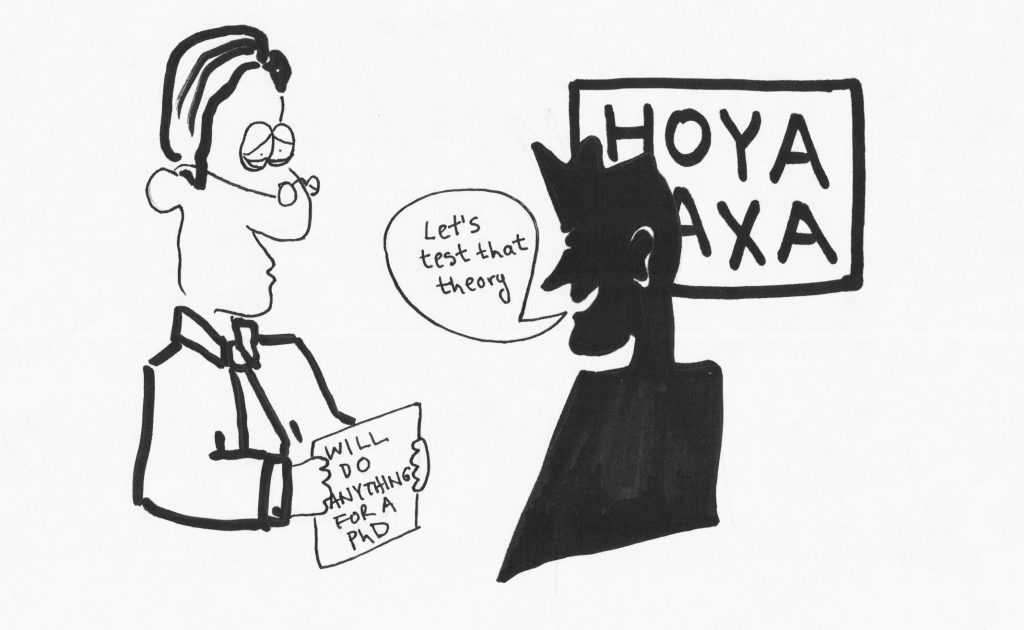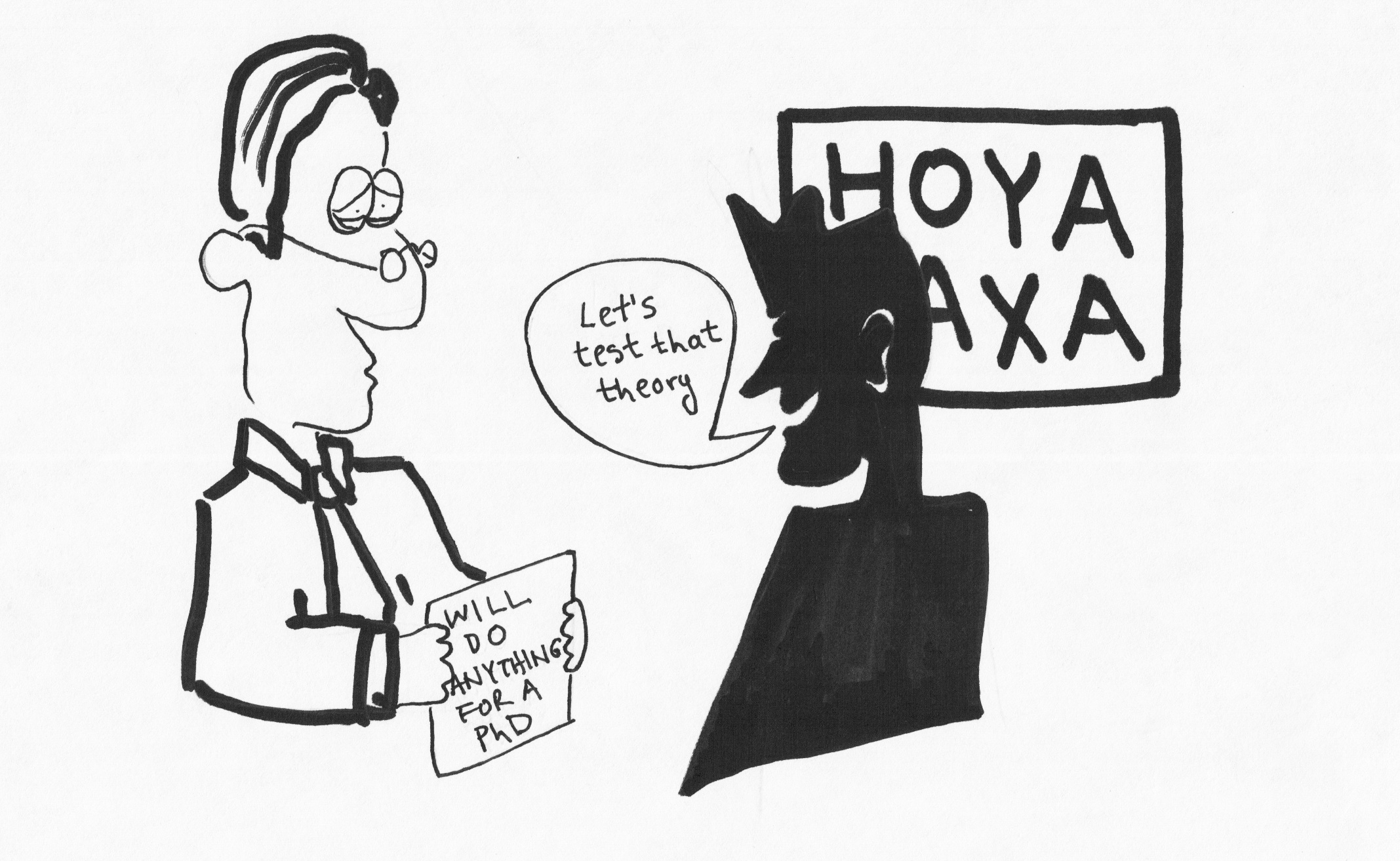When hours increase, it would seem logical that a rise in pay would follow. For Georgetown’s Ph.D. candidates, however, the events of recent months have strayed from that simple logic.
In late February, Georgetown’s Ph.D. candidates discovered that their maximum employment hours were increasing from 15 to 20 without a proportional increase in their stipends. Furthermore, Ph.D. candidates will no longer be allowed to work additional positions at the University. The Ph.D. candidates did not learn this information through any kind of public announcement, but instead through word of mouth, after the changes were briefly mentioned during a meeting for international Ph.D. candidates.

Photo: Erin Annick
Feeling that the nature and inadequate publicity of these changes were unfair, members of the Doctoral Students Coalition (DSC) have since started a petition asking Dean Norberto Grzywacz, Dean of the Georgetown University Graduate School of Arts and Sciences, to reconsider their implementation. The petition, which has been signed by over 250 students and faculty (about 75 percent of the signees are Ph.D. candidates) as of April 20, 2016, has already had an effect. Dean Grzywacz has agreed to grant a one-year grace period to current Ph.D. candidates, allowing them to continue to hold five hour a week positions during the 2016-2017 academic year.
While this Editorial Board maintains that the postponement is a positive step, it is difficult to see how these proposed changes will do anything other than limit the opportunity of Ph.D. candidates. By taking away their ability to work additional part-time jobs for the University, these changes cut off an extra source of income for these candidates that could be used for expenses ranging from child care to medical bills.
Although the minimum Ph.D. stipend for 2016-2017 is being increased from $26,000 to $27,000, this increase would not make up for the additional five hours of service hours per week a student might have to work, and would not benefit students currently receiving more than $27,000. Furthermore, there appear to be no proposed measures to ensure Ph.D. candidates’ hours will actually be capped at 20, as members of the DSC have complained that they often work more than the present cap of 15.
International students are especially affected by these proposed changes, as their visas require that they do not work more than 20 hours a week. While a domestic student could hypothetically seek additional non-university employment, an international student working 20 service hours per week would be prohibited from gaining any additional income or work experience. In an email to the Voice, Dean Grzywacz claimed that around 8 percent of Ph.D. candidates work additional part-time positions for the University and that the proposed changes create “consistency across all Ph.D. programs.” However, as the case of international students clearly exemplifies, there are clear reasons why part-time employment benefits some students, even if they are a minority. It is unfair to take away this opportunity from these students for the sake of homogeneity.
Perhaps even more concerning than the specific changes in Ph.D. student working requirements is the way in which they were announced. Mentioning the changes in a meeting and allowing the information to spread is an inadequate way of providing information to students, and the Graduate School has still not made an official public announcement detailing the changes.
Dean Grzywacz asserted that the Graduate Student Organization was involved in the discussion stages for the changes in an email to the Voice. But the GSO consists mainly of Masters students rather than Ph.D. candidates, the group that these changes would affect, Jake Earl, a DSC member, wrote in an email to the Voice. It seems inappropriate to consult with the GSO instead of seeking to consult a better representation of Ph.D. candidates.
If the graduate school had consulted more with Ph.D. candidates before deciding on changes to their service and part time hours, both parties could have avoided their current disagreements and settled any differences without the current uproar. Even if the proposed changes helped Ph.D. candidates, the lack of involvement in the decision-making process and the suddenness of the announcement of the changes made a negative reaction from Ph.D. candidates much more likely.
The discontent of Ph.D. candidates is directed not only at the unfairness and limitations of the changes they face, but also at the closed-doors process through which these decisions were made. Sure, righting the wrongs made in this specific case would be a positive step. But reconsidering the process that led to these mistakes is equally necessary.







